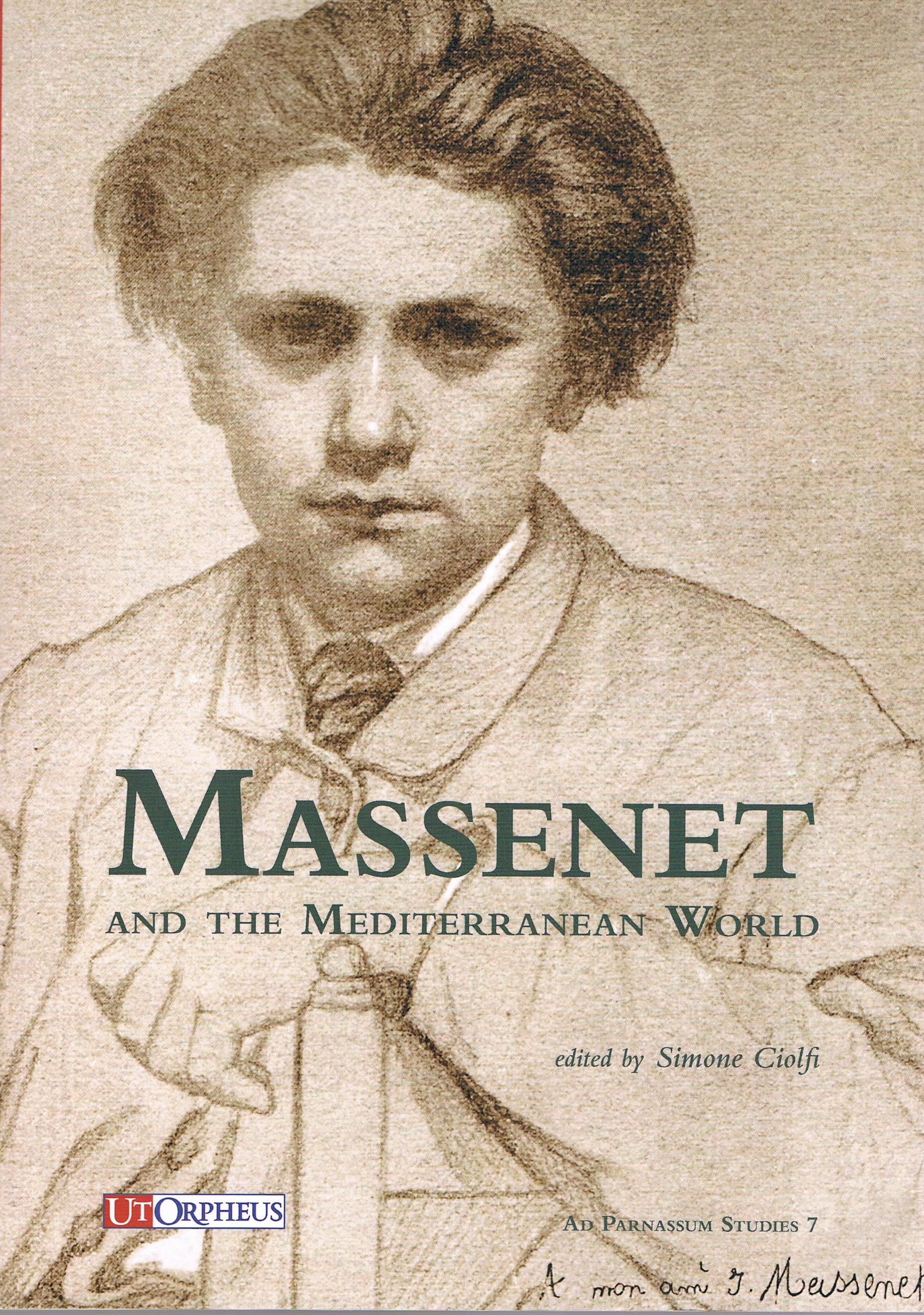
Ad Parnassum Studies 7
General editor Luca Lévi Sala
Published in 2015, 315 pp , ISBN 978-88-8109-491-2
MASSENET AND THE MEDITERRANEAN WORLD edited by Simone Ciolfi

Ad Parnassum Studies 7
General editor Luca Lévi Sala
Published in 2015, 315 pp , ISBN 978-88-8109-491-2
The Mediterranean world represented a cultural and social environment to Jules Massenet. It provided him in his operas and instrumental music with characters and scenes that enabled him to interpret the spiritual and psychological tensions of the late Romantic period.
For Massenet the Mediterranean world had broad boundaries in both time and place; it included Roman history, the antique Orient, and also the south of Spain, Italy and France with their magical, sometime sinful nuances. Consequently, Massenet’s engagement with Mediterranean culture is duel-faceted, encompassing antique Roman and Oriental societies with their mysterious, sensual suggestions useful for passionate opera plots, and contemporary Mediterranean societies, suitable for a more picturesque approach.
This book reflects these two tendencies. The essays analyse the basic duality, but also introduce an additional viewpoint : the reception of Massenet’s music in his contemporary Mediterranean world. The analytical approaches represent an inquiry into the reception of Mediterranean compositional theory in Massenet’s training.
This volume comprises a selection of contributions presented at the international conference “Massenet and the Mediterarrean World” held in Lucca from 30 November to 2 December 2012. Contributors include Mathias Auclair, Jean-Christophe Branger, Simone Ciolfi, Matthew Franke, Vincent Giroud, Stéphanie Klauk, Hugh MacDonald, Juergen Maehder, Claire Paolacci, Jann Pasler, Marco Polacci, Alban Ramaut, Manuela Rita, Tommaso Sabbatini and Sabine Teulon Lardic.
All articles are interesting and fascinating to read and are written with great scholarship and eye for detail. The only real mistake I came across was a funny one; one page 108 in a nevertheless excellent article on Massenet (and his students) in Algeria “La Juive” is attributed to Hérold. An index is included.
The figure of Massenet and his music has been neglected by scholarship over the last two decades (1). This book aims to fill the gap with a subject not tied exclusively to music but encompassing the impact of a specific cultural dimension on the composer and his music. This dimension is broad in time and place, but no less specific for this breadth. This novel approach is one the authors have tried to maintain throughout the contributions. Although the enquiry is never-ending , the contributors hope that their combined effort as embodied in this book might provide a basis for further research. A must-read for all lovers of French opera and Massenet in particular.
(1) except “La Belle époque de Massenet” published in 2011 under the direction of Christophe Ghristi and Mathias Auclair.